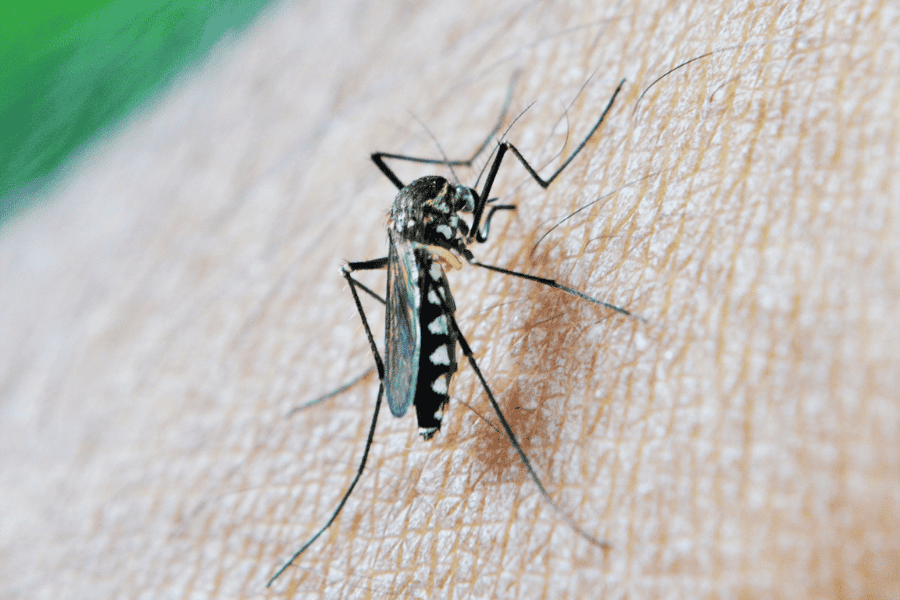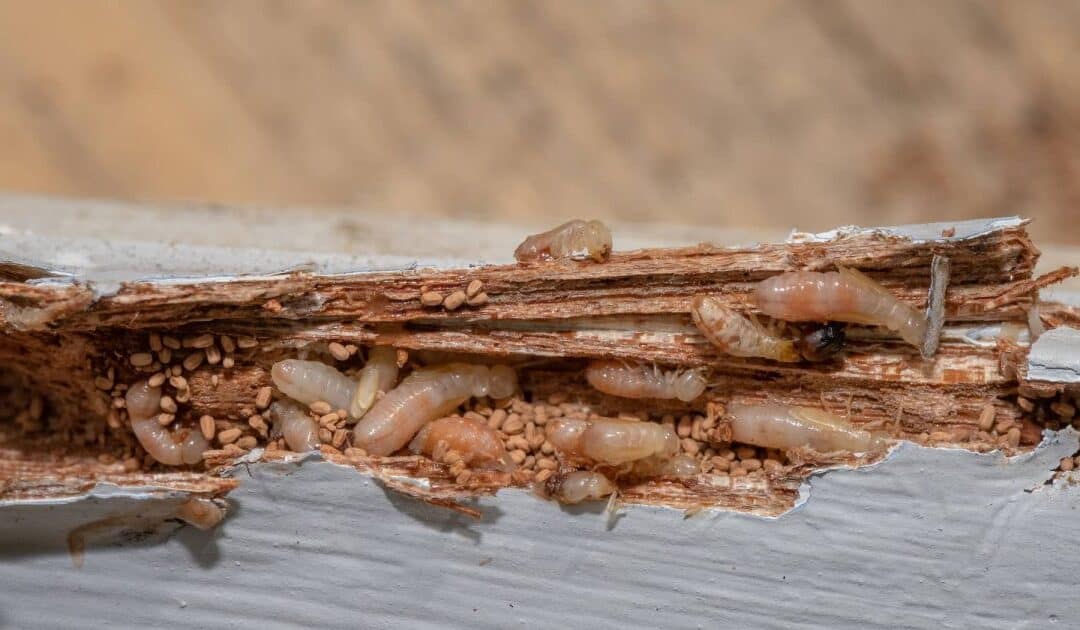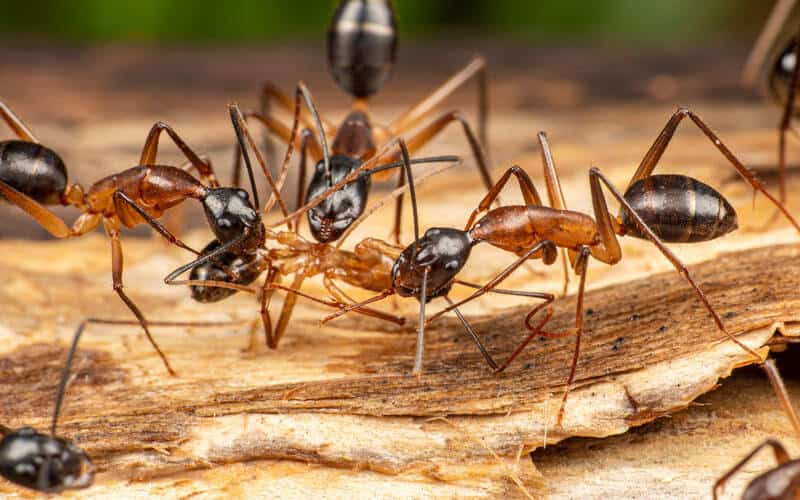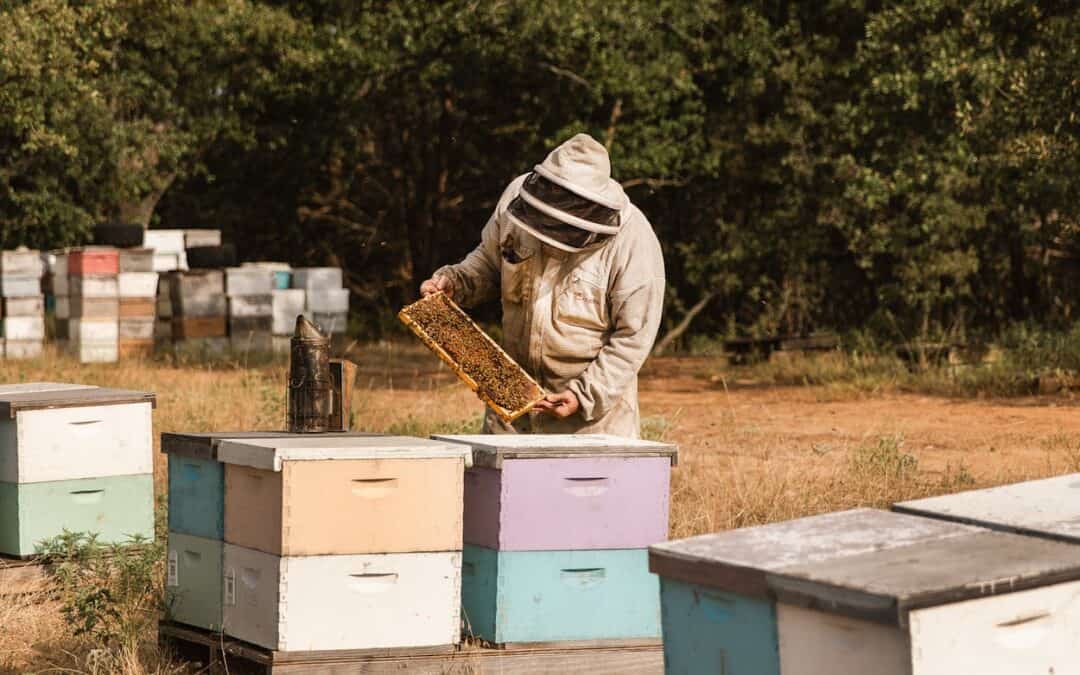READY TO GET STARTED?
REQUEST A FREE ESTIMATE
Fill out the form below or call (888) 466-7849 for a free, no-obligation estimate.

If you’re living in Atlanta, Georgia, you know that mosquito season is no joke. From late spring through early fall, these buzzing, biting pests can turn your relaxing backyard into an unbearable space. If you find yourself searching for “pest control near me”, you’re not alone—and the good news is, help is right around the corner.
With the right mosquito control strategy and pest control services, you can reclaim your yard and enjoy the warm Georgia evenings without worrying about itchy bites or dangerous diseases. Here’s everything you need to know about dealing with mosquito problems in Atlanta—and how professional pest control can make all the difference.
In Atlanta, mosquito season typically begins as early as March and can last all the way through October, depending on the weather. Mosquitoes thrive in warm, humid conditions, which makes Georgia’s climate ideal for long-lasting mosquito activity.
The season peaks during the hot summer months—June through September—when standing water is more abundant and breeding conditions are perfect. If left untreated, a single backyard can host hundreds, if not thousands, of mosquitoes, creating a serious pest infestation that affects your health, comfort, and quality of life.
Mosquitoes aren’t just annoying; they can be dangerous. In Georgia, mosquitoes are known carriers of diseases like West Nile virus, Eastern Equine Encephalitis, and Zika virus. For families with children or pets, this poses an increased risk that shouldn’t be taken lightly.
Even if you’re only dealing with a mild nuisance, a mosquito problem can quickly escalate. Standing water, overgrown vegetation, and shaded areas provide perfect breeding grounds, turning your yard into a hotbed for pests in a matter of days.
When you search for pest control near me, you’re likely looking for an immediate and effective solution. That’s where professional pest control services step in. A licensed pest control technician can assess the extent of your mosquito problem and create a customized treatment plan tailored to your yard.
Backpack Fogging or Misting: A technician will spray a fine mist around shrubbery, trees, fences, and other mosquito-prone areas to kill adult mosquitoes on contact. This method also provides a residual effect that lasts for weeks.
Larvicide Applications: By treating standing water with safe and effective larvicides, technicians can stop mosquitoes at the source—preventing them from maturing into biting adults.
In2Care® Mosquito Traps: This innovative, eco-friendly trap attracts female mosquitoes and spreads a fungus that kills both larvae and adults. In2Care offers long-term mosquito control with minimal environmental impact.
Ongoing Treatment Plans: Monthly or bi-weekly treatments during mosquito season can prevent future infestations and help you maintain a pest-free yard.
In addition to hiring pest control services, homeowners can take several steps to reduce mosquito populations around the home:
Dump out flowerpots, bird baths, buckets, kiddie pools, and clogged gutters—mosquitoes lay their eggs in stagnant water.
Keep grass trimmed and bushes pruned to eliminate shady resting places for adult mosquitoes.
Mosquitoes are weak fliers. Installing fans on patios or decks can help keep them away during gatherings.
Plants like citronella, lavender, and marigolds are natural deterrents. Add them to your landscaping for extra protection.
Unfiltered or untreated pools are perfect breeding grounds for mosquitoes. Ensure your pool is clean and chemically balanced.
These simple steps, combined with professional pest control, can drastically reduce the number of mosquitoes on your property.
While DIY solutions may offer temporary relief, they rarely address the root of the problem. Partnering with a professional pest control company in Atlanta ensures:
Thorough inspections to identify hidden breeding grounds
Targeted treatments that are safe for your family and pets
Ongoing support to help you prevent future pest problems
Peace of mind knowing your home is protected
When you work with local experts, you benefit from their understanding of Georgia’s unique climate and pest behaviors. They’ll tailor their approach specifically to your needs, ensuring better results and long-term protection.
Don’t let mosquitoes ruin your outdoor space this season. Whether you’re dealing with an active infestation or just want to stay ahead of the problem, a quick search for “pest control near me” will lead you to the local experts who can help.
By investing in mosquito control and year-round pest control services, you can protect your family, enjoy your backyard again, and avoid the dangers that come with ignoring a pest infestation.
Ready to take back your yard from mosquitoes and other pests? Our team of experts in Atlanta, GA is here to help you every step of the way. From custom treatment plans to ongoing support, we’ll ensure your home stays protected all year long.
Don’t wait until mosquito season is in full swing. Call us now or click the link below to request a FREE pest control quote today and enjoy peace of mind all summer long!

Miami’s warm, humid climate makes it a hotspot for drywood termites. These pests, living entirely within wood, can cause significant damage if left untreated. Unlike subterranean termites, they don’t need soil, making infestations harder to detect. Here’s how to protect your Miami home with effective, eco-conscious treatments and prevention tips from termite control near me.
For severe infestations, fumigation is a reliable solution. Professionals tent the home and release a gas that penetrates wood to eliminate termites. This treatment leaves no residue behind making this option much healthier for the environment.
No-tent treatment is a less invasive and eco-friendlier solution for smaller infestations. It uses non-repellent products, often derived by adhering to sustainable practices, which target termites directly without affecting other species. This precise application minimizes chemical use while effectively eliminating colonies.
Preventing termites isn’t just about keeping your home protected; it’s also an opportunity to adopt greener practices that help the environment. Here are some tips for keeping drywood termites at bay while staying eco-conscious:
Drywood termites can cause costly damage, but with quick action and the right choices, you can protect your home. Contact a Miami-based termite control expert for professional inspections and effective treatments. With proven prevention strategies and reliable solutions, you can safeguard your home and enjoy peace of mind for years to come with termite control near me.

Ants enter homes for food and water, especially during Florida’s rainy season or dry spells. Common attractors include food crumbs, unsealed containers, cracks around windows and doors, and pet food left out. Understanding their behavior helps eliminate what draws them indoors.
Close gaps and cracks around windows, doors, and baseboards with silicone caulk. Sealing not only blocks ants but also improves your home’s energy efficiency during Florida’s hot months.
Clean up crumbs after outdoor meals and keep pet food bowls elevated with a surrounding water moat. This discourages ants from dining near your home.
Trim bushes and trees near your home to eliminate easy ant pathways. Remove debris like leaves and mulch and keep garden areas clean and evenly watered to prevent ant colonies from forming nearby.
If ants manage to sneak inside, try these eco-friendly remedies:
Using natural solutions keeps your home comfortable while protecting Florida’s delicate ecosystems. For added support, work with local pest control professionals who specialize in eco-conscious methods for ant control near me. Together, you can maintain a pest-free home while respecting the environment.

Pest infestations can be a major nuisance for homeowners and businesses in Atlanta. Whether you are dealing with ants in the kitchen, rodents in the attic, or termites damaging your home’s foundation, securing professional pest control services is essential. But how much does pest control cost in Atlanta? In this blog, we will break down common pest control services, factors that influence pricing, and why investing in scheduled pest management is a smart decision. If you’re looking for affordable pest control solutions, read on to find out what to expect from a local exterminator and how to get the most effective pest control Atlanta has to offer.
When hiring a professional pest control company, the type of service you need will greatly affect the price. Here are some of the most common pest control services available in Atlanta:
This service includes treatments for common household pests such as ants, spiders, cockroaches, silverfish, and earwigs. It typically involves an initial treatment followed by regular maintenance visits to prevent future infestations.
Termites can cause significant structural damage, making them one of the most expensive pests to manage. A professional termite control company will offer bait stations, liquid treatments, or fumigation services to eliminate pests and protect your home from future infestations.
Rodents like rats and mice pose serious health risks. Professional rodent control services include trapping, exclusion, and preventative measures to keep rodents from returning.
Mosquitoes thrive in Atlanta’s humid climate. Mosquito control services use larvicides, adulticides, and habitat reduction to control populations effectively.
Bed bug infestations require specialized treatments such as heat treatments, chemical applications, or a combination of both.
If you have issues with raccoons, squirrels, or opossums, hiring a local exterminator for humane wildlife removal services is crucial.
The cost of pest control Atlanta services depends on several key factors:
Some pests, like termites and bed bugs, require specialized treatments that are more expensive than general pest control.
A minor pest issue will cost significantly less than a full-blown infestation requiring extensive treatment.
A one-time pest control treatment costs more per visit than an ongoing maintenance plan. Many homeowners opt for scheduled pest control services to prevent future infestations.
Larger homes or commercial buildings require more product and labor, increasing the overall cost.
Eco-friendly and green pest control solutions may cost more than traditional chemical treatments but offer safer alternatives for families and pets.
A highly trained professional from a reputable company may charge more, but their expertise ensures effective pest control solutions that save you money in the long run.
Many homeowners and businesses in Atlanta opt for ongoing pest management plans rather than one-time treatments. Here’s why:
Regular maintenance prevents large infestations that can be costly to eliminate.
Scheduled pest control ensures that treatments remain active and prevent future pest problems before they escalate.
Pests carry diseases, contaminate food, and cause allergies. Professional pest control services help protect your family and employees from health risks.
Termites, rodents, and carpenter ants can cause significant damage to your home’s structure. Routine pest management safeguards your investment.
Knowing that your home is protected from pests year-round provides peace of mind and a better quality of life.
Atlanta’s warm climate makes it a hotspot for various pests. Here are some of the most common:
If you’re looking for affordable pest control options, follow these tips:
Pests can be a persistent problem, but with highly trained professionals on your side, you can eliminate pests and protect your home year-round. Whether you need a one-time treatment or ongoing pest management, hiring an Atlanta pest control company ensures that you get the most effective pest control solutions available.
If you’re struggling with a pest problem, don’t wait—contact a local exterminator today for a free inspection and take the first step toward a pest-free home!
Don’t let pests take over your home or business. Contact us today to schedule your free inspection and get a customized treatment plan from Atlanta’s top pest control services provider. Our highly trained professionals are ready to provide affordable pest control solutions to keep your space pest-free. Call now and reclaim your home!

If you’ve discovered a buzzing colony of honeybees on your property, you might be wondering what to do. Don’t worry—there’s a way to handle this situation that protects both your home and these important little pollinators! Honeybee relocation is a great solution, and local beekeepers are key to making it happen.
Honeybees are vital for pollinating plants, which helps flowers bloom and fruits and vegetables grow. But sometimes, they end up in places that aren’t ideal for homeowners. This is where beekeepers step in to relocate the colony, giving the bees a better location while ensuring your property is free of concerns.
Here’s why local beekeepers play such an important role in this process and how it benefits homeowners like you.
Honeybees play a huge role in our environment. They pollinate about one-third of the crops we eat, including fruits, vegetables, nuts, and more. Without them, plants wouldn’t grow as well or produce as much food.
However, as urban areas expand and natural spaces shrink, honeybees sometimes end up building their hives in places like walls, attics, or trees near homes. Relocation protects their colonies and ensures they can continue their important work elsewhere, away from high-traffic areas or living spaces.
Beekeepers are experts in handling honeybee colonies. Their knowledge and care make relocation possible while keeping the bees healthy and productive. Here’s how they help:
When honeybee colonies need to be relocated, local beekeepers and pest control professionals often team up. Here’s what the process looks like:
Choosing honeybee relocation not only solves the immediate problem of a hive on your property but also helps the environment in several ways. Here’s how you benefit:
Honeybees are facing growing challenges like habitat loss and pesticide use . The work of local beekeepers in relocating hives is crucial for supporting bee populations. Without honeybees, we risk losing countless plants that depend on them, from garden flowers to crops that feed our families.
By choosing relocation over extermination, homeowners can make a big difference. It’s a simple decision that protects the bees, your property, and the environment.
Next time a hive appears near your home, remember that local beekeepers are here to help. They’re not just moving bees—they’re protecting pollination, promoting agriculture, and contributing to a thriving planet. Together, we can all do our part to support these incredible pollinators and keep our communities blooming. If you find a hive on your property, reach out to honeybee experts to responsively relocate the bees and protect your space, all while supporting a healthier environment.